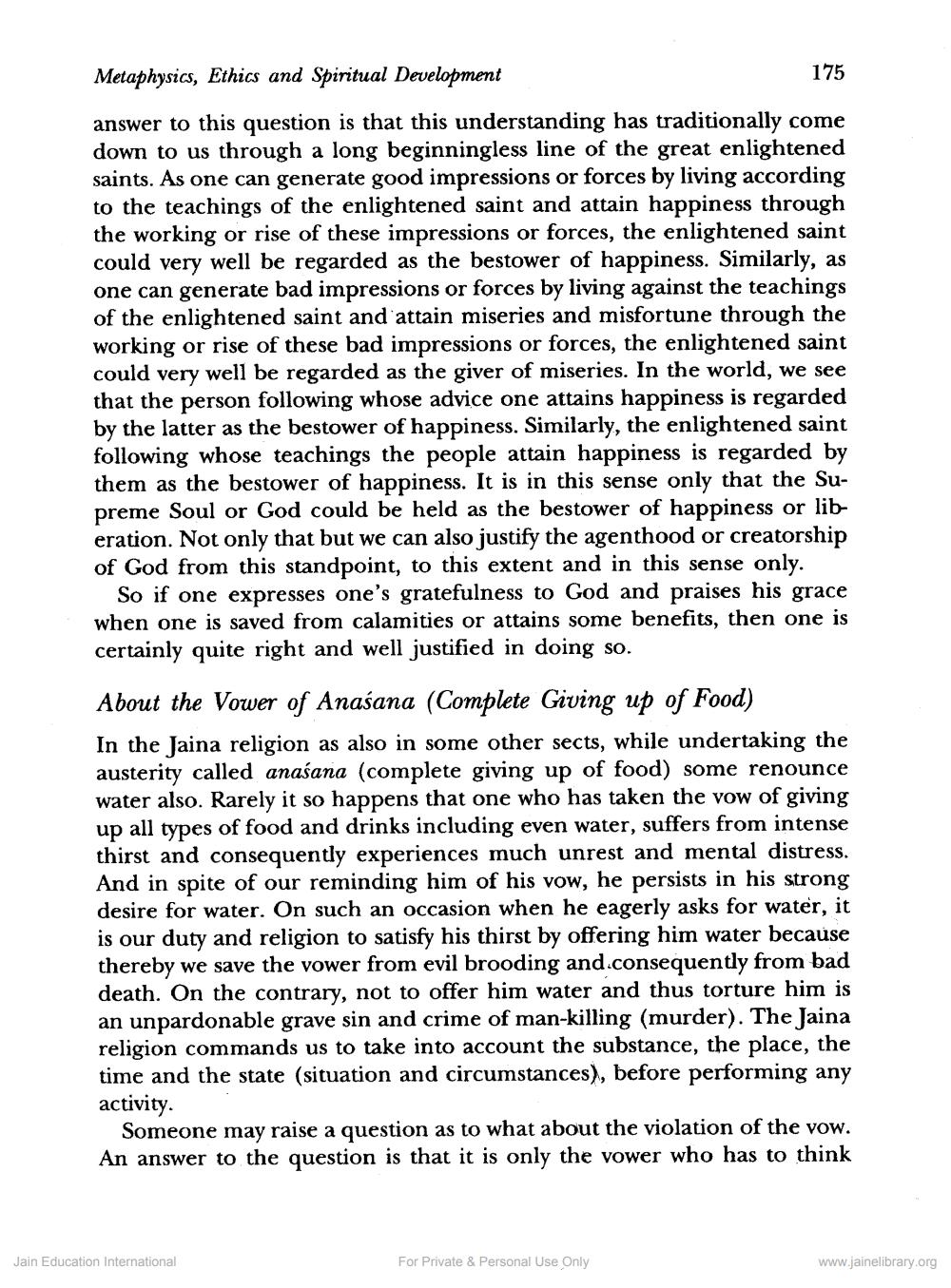________________
Metaphysics, Ethics and Spiritual Development
175
answer to this question is that this understanding has traditionally come down to us through a long beginningless line of the great enlightened saints. As one can generate good impressions or forces by living according to the teachings of the enlightened saint and attain happiness through the working or rise of these impressions or forces, the enlightened saint could very well be regarded as the bestower of happiness. Similarly, as one can generate bad impressions or forces by living against the teachings of the enlightened saint and attain miseries and misfortune through the working or rise of these bad impressions or forces, the enlightened saint could very well be regarded as the giver of miseries. In the world, we see that the person following whose advice one attains happiness is regarded by the latter as the bestower of happiness. Similarly, the enlightened saint following whose teachings the people attain happiness is regarded by them as the bestower of happiness. It is in this sense only that the Supreme Soul or God could be held as the bestower of happiness or liberation. Not only that but we can also justify the agenthood or creatorship of God from this standpoint, to this extent and in this sense only.
So if one expresses one's gratefulness to God and praises his grace when one is saved from calamities or attains some benefits, then one is certainly quite right and well justified in doing so.
About the Vower of Anaśana (Complete Giving up of Food) In the Jaina religion as also in some other sects, while undertaking the austerity called anaśana (complete giving up of food) some renounce water also. Rarely it so happens that one who has taken the vow of giving up all types of food and drinks including even water, suffers from intense thirst and consequently experiences much unrest and mental distress. And in spite of our reminding him of his vow, he persists in his strong desire for water. On such an occasion when he eagerly asks for water, it is our duty and religion to satisfy his thirst by offering him water because thereby we save the vower from evil brooding and consequently from bad death. On the contrary, not to offer him water and thus torture him is an unpardonable grave sin and crime of man-killing (murder). The Jaina religion commands us to take into account the substance, the place, the time and the state (situation and circumstances), before performing any activity.
Someone may raise a question as to what about the violation of the vow. An answer to the question is that it is only the vower who has to think
Jain Education International
For Private & Personal Use Only
www.jainelibrary.org




